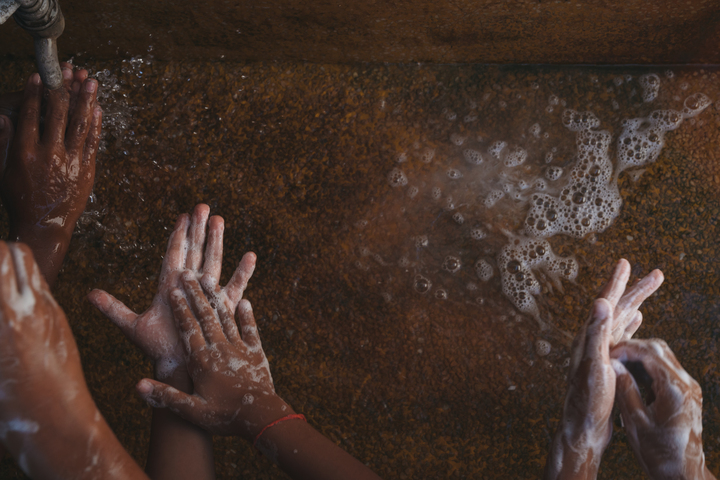We employ women across Africa and Asia to recycle soap scrap into new bars and distribute to people who need them.



.jpg)

Since Eco-Soap Bank launched in 2015, we've provided more than 9 million people with soap and hygiene education through dozens of NGO partnerships. That means health clinics can now give soap as a preventative resource to patients who come in sick from diarrhea, which accounts for 1 in 9 child deaths worldwide. It also helps get sick kids back in school.
We're also proud of our impact on the environment. Eco-Soap Bank recycles soap scraps for soapmakers of all sizes, from small independent businesses to some of the largest global manufacturers. Since 2015, we have recycled over 9.7 million pounds of soap that would otherwise have wound up in landfills.
.jpg)

Eco-Soap Bank currently employs 175 women from disadvantaged backgrounds. These women also serve as hygiene ambassadors, selling recycled soap in their communities and promoting its use. It's been shown that for every dollar invested in hygiene and sanitation in the developing world, an average of $25.50 is returned. One of our primary goals is to continue to focus on the economic impact of good hygiene in the developing world.
Throughout the process, we coordinate with our network of humanitarian organizations working in remote regions of developing nations to create a positive shift in hygiene behavior. Our in-house research team continuously measures our impact to ensure that we are helping communities in the best way possible. We learn from these findings so that we can continue to keep people healthy for generations.
Find out more about our specific areas of impact by reading our research

The demand for improved hygiene in the developing world is immense, and much remains to be done. You can help support Eco-Soap Bank by getting involved, or by spreading the word on Facebook, Instagram, and LinkedIn.